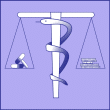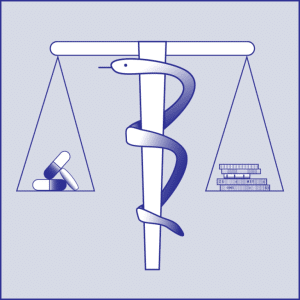The Fair Pharma Scorecard 2022
- Home
- Fair Pharma Scorecard
About the Fair Pharma Scorecard
To what extent do pharmaceutical companies comply with human rights during the Covid-19 pandemic?
The Fair Pharma Scorecard ranks 26 pharmaceutical companies based on their compliance with 19 human rights principles. It shows how they performed when it comes to human rights commitments, transparency, international cooperation, and equality, non-discrimination and equity during the Covid-19 pandemic.
See the table for an overview of how companies scored. Click on a company name for the detailed assessment.
Key Findings
None of the companies complied with all evaluation criteria, and most still need to take big steps to make Covid-19 vaccines, medicines and diagnostics available and affordable.
Other key takeaways include:
- Minimal appetite for open knowledge sharing: Open sharing of knowledge and intellectual property (IP) is one of the fastest ways to increase access to medical products. But only two companies have signed deals with the Medicines Patent Pool, a UN-backed public health organisation that increases access to medicines through patent licensing: MSD on its antiviral product molnupiravir and Pfizer on nirmatrelvir/ritonavir (Paxlovid). None have joined the WHO’s Covid-19 Technology Access Pool (C-TAP), despite the global push by governments and civil society. Pfizer and Moderna refused to share the patents for their life-saving mRNA vaccines and have mostly sold their products to high-income countries. On the other hand, five companies have committed to not enforcing patents during the pandemic (Texas Children’s Hospital, Finlay, CIGB, Gamaleya and Moderna).
- Transparency: easy for some criteria, difficult for others: Companies are more transparent about their clinical trial results (100% compliance) and their production capacity (72% compliance), than about their production costs (Texas Children’s Hospital is the only company to disclose these). Over half of the companies publish their overall research and development costs, but only two (Novavax and Gilead) break these down product by product.
- Company behaviour can vary per product: For example, Pfizer scored 65% for its antiviral Paxlovid, but only 50% for its vaccine. Pfizer stated in a response to our questionnaire that the most important tool in a country’s arsenal remains vaccines – yet the company has still refused to share IP and technology for its mRNA vaccine. It is important to identify the nuances in the behaviour of companies to see how well integrated good practices are.
- Human rights policies: commitment is good, but the devil is in the detail: Some of the top-scoring companies (Texas Children’s Hospital, Finlay, CIGB) do not have an explicit human rights policy, yet their behaviour is the most human rights-compliant. Mentioning human rights is a good first step. But truly improving access to medicines requires integrating human rights principles into a company’s activities and programming, not just its manifesto.
- Reconciling human rights and pharma: it can be done: The Fair Pharma Scorecard highlights the practices that should become guiding lights for pandemic preparedness and responses and those that must become ancient history. It also shows that human rights principles can be compatible with running a viable pharmaceutical business model, as is demonstrated by the highest scorers on the list. Now more must be pushed to follow the lead of those high scorers.
Scorecard overview
Click on a company’s name to see its detailed scorecard.


